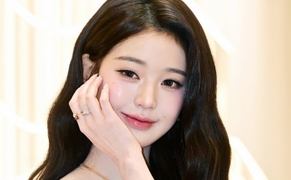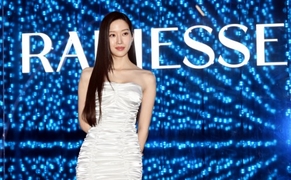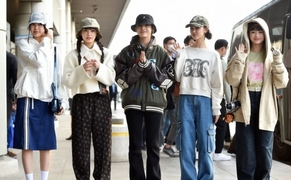 |
| The ruling Democratic Party’s presidential candidate Lee Jae-myung (left) and the main opposition People Power Party’s presidential candidate Yoon Seok-youl/ Source: Yonhap |
AsiaToday reporter Lee Wook-jae
Ahead of the upcoming March 9 presidential election, the presidential nominees of both the ruling and opposition camps are coming up with populist campaign pledges. This is raising concerns among political watchers as the nominees are focused on providing cash handouts for all citizens or certain specific groups in a bid to boost their popularity, while not considering the nation’s fiscal soundness.
The government and the ruling Democratic Party continued Monday to argue over the idea of providing additional universal relief floated by DP candidate Lee Jae-myung. Last month, Lee suggested that an additional 300,000 won ($255) to 500,000 won be offered to each person amid the pandemic.
The ruling party is actively supporting Lee’s pledges. On the same day, Rep. Park Wan-joo, who heads the DP’s policy planning committee, stressed that the party is willing to push for the universal relief for the public, saying, “If the additional tax revenue is about 10 trillion won to 15 trillion won, the amount that can be given to the public is 200,000 won to 250,000 won per person.”
Lee argues that universal relief is absolutely necessary, and it can be financed with an estimated excess tax revenue of some 40 trillion won for this year. While the relief fund is aimed at helping the people cope with the fallout of the pandemic, he believes it is not necessary to select a specific group since it is an economic policy to support small business owners and the self-employed. The ruling party also believes the government is able to offer cash handouts considering the fact that other countries including the United States and Japan provided cash handouts and that South Korea provided relatively little compared to GDP.
The ‘excess tax revenue of 40 trillion won’ mentioned by Lee is expected to be collected further this year. However, as the government has already drawn up budgets in a way that tapped 31.5 trillion won for its fiscal spending, it is estimated that the additional tax revenue that can be actually used is about 10 trillion won.
The idea is not welcomed by public. In a recent survey by the Korea Society Opinion Institute (KSOI) on 1,900 people aged 18 and over nationwide from Nov. 5 to Nov. 7, 60.1 percent said the government should not offer the universal relief because it puts a burden on the finances.
Just like Lee’s pledge, PPP candidate Yoon Seok-youl also said he would pour huge amounts of money. In a previous interview, Yoon said, “We will invest 50 trillion won in 100 days of the new government’s inauguration to compensate for the damage caused by the government’s business restrictions. He claimed that the 50 trillion won is a much smaller amount than the amount that Lee has proposed.
Amid criticism that both the ruling and opposition presidential candidates are trapped in populist pledges, experts and the international community warn about the country’s fiscal soundness. According to the ‘2021-2030 Medium-Term Fiscal Prospect’ report announced by the National Assembly’s Office of National Assembly, the 10-year increase in national debt, which is 965.9 trillion won this year, is expected to soar to 2198.8 trillion won in 2030, with the debt-to-GDP ratio climbing to 78.9 percent.
#Lee Jae-myung #Yoon Seok-youl #pledge #universal relief #populist
Copyright by Asiatoday
Most Read
-
1
-
2
-
3
-
4
-
5
-
6
-
7





















